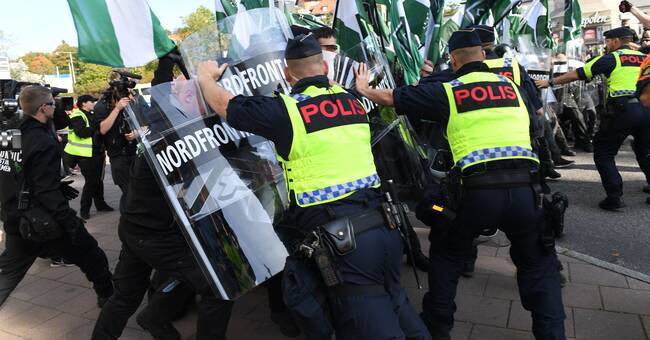The incitement against the ethnic group prosecution was based, among other things, on the suspects carrying placards in which people with a Jewish background were named and singled out as criminals, and in a speech these people were accused of having committed "genocide" on the Nordic population.
But also that the people wore uniform and uniform-like equipment and flags and shields with the Nordic resistance movement's symbol tyrrunan on.
"Symbols have previously led to convictions"
Now the public prosecutor wants HD to try the indictment again and believes that the presentation of the tyrruna should be enough to judge for incitement against ethnic groups.
- There are previous cases similar to this where people have been convicted of incitement against ethnic groups.
These are demonstrations where the participants wore uniform-like attire, wore a certain symbol and gave speeches.
The big difference is that in this case they wore a symbol that is not as well known as the Nazi symbol as, for example, the swastika is and that they did not have uniforms from the 30s and 40s, says Attorney General Petra Lundh in a press release.
"The context to be assessed"
Lundh believes that it is well known by both Nazis and Holocaust survivors that the tyrrune was used by the Nazis of the 1930s and 1940s, and that it was obvious to anyone who saw the demonstration that the people who participated wanted to spread Nazi messages.
- My assessment is that all the overall circumstances in this case mean that the persons should be convicted of incitement against an ethnic group, despite the fact that parts of the material are covered by the Freedom of the Press Ordinance.
It is the context in which the tyrrun is worn that must be assessed.
I consider particularly important circumstances to be the speech that was given and the uniform-like attire, says Petra Lundh.

